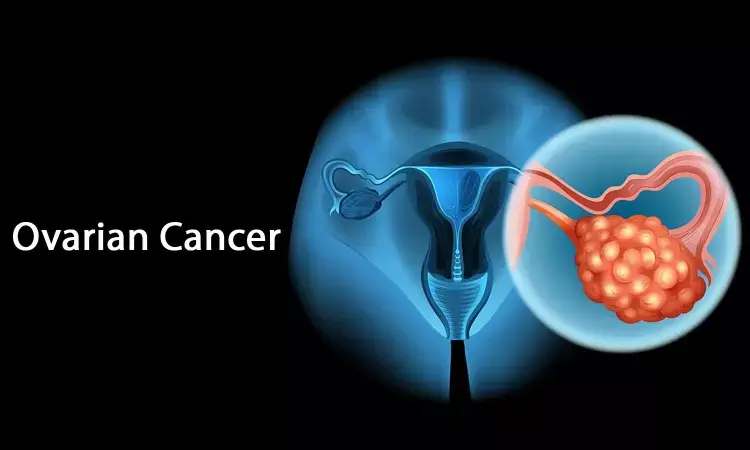- Home
- Medical news & Guidelines
- Anesthesiology
- Cardiology and CTVS
- Critical Care
- Dentistry
- Dermatology
- Diabetes and Endocrinology
- ENT
- Gastroenterology
- Medicine
- Nephrology
- Neurology
- Obstretics-Gynaecology
- Oncology
- Ophthalmology
- Orthopaedics
- Pediatrics-Neonatology
- Psychiatry
- Pulmonology
- Radiology
- Surgery
- Urology
- Laboratory Medicine
- Diet
- Nursing
- Paramedical
- Physiotherapy
- Health news
- Fact Check
- Bone Health Fact Check
- Brain Health Fact Check
- Cancer Related Fact Check
- Child Care Fact Check
- Dental and oral health fact check
- Diabetes and metabolic health fact check
- Diet and Nutrition Fact Check
- Eye and ENT Care Fact Check
- Fitness fact check
- Gut health fact check
- Heart health fact check
- Kidney health fact check
- Medical education fact check
- Men's health fact check
- Respiratory fact check
- Skin and hair care fact check
- Vaccine and Immunization fact check
- Women's health fact check
- AYUSH
- State News
- Andaman and Nicobar Islands
- Andhra Pradesh
- Arunachal Pradesh
- Assam
- Bihar
- Chandigarh
- Chattisgarh
- Dadra and Nagar Haveli
- Daman and Diu
- Delhi
- Goa
- Gujarat
- Haryana
- Himachal Pradesh
- Jammu & Kashmir
- Jharkhand
- Karnataka
- Kerala
- Ladakh
- Lakshadweep
- Madhya Pradesh
- Maharashtra
- Manipur
- Meghalaya
- Mizoram
- Nagaland
- Odisha
- Puducherry
- Punjab
- Rajasthan
- Sikkim
- Tamil Nadu
- Telangana
- Tripura
- Uttar Pradesh
- Uttrakhand
- West Bengal
- Medical Education
- Industry
New treatment options for young women diagnosed with rare form of ovarian cancer

COLUMBIA -Many rare ovarian cancer subtypes, such as small-cell carcinoma of the ovary, hypercalcemic type (SCCOHT), have poor prognosis due to their aggressive nature and resistance to standard platinum- and taxane-based chemotherapy.
A recent finding by researchers at the BC Cancer Research Institute and the University of British Columbia (UBC) may offer a new treatment possibility for people diagnosed with a rare and aggressive form of ovarian cancer.
Small cell carcinoma of the ovary, hypercalcemic type (SCCOHT), is a particularly devastating cancer that has no effective treatments and is usually diagnosed in women in their 20s. The study, published in Clinical Cancer Research, describes a metabolic vulnerability present in cells that may represent a therapeutic target if proven in clinical trials.
"Finding this vulnerability and identifying a way to exploit it could have a huge impact for anyone diagnosed with this rare disease," said the study's first author Jennifer Ji, an MD/PhD candidate at UBC's faculty of medicine and trainee at the BC Cancer Research Institute.
The discovery is welcome news to Justin Mattioli, whose 34-year-old wife Eileen, passed away from SCCOHT in the spring of 2019. Prior to her passing, Eileen made the decision to donate her tissue samples to help advance cancer research in the hopes of finding new treatments for others facing the disease.
"We would hate to see someone else go through what Eileen did," said Justin. "And there is a good possibility that this may help advance further research into other types of cancers as well."
Eileen's samples are being used as a new cell model, enabling researchers to test the effects of new treatments and to better understand the biology of the disease.
The team found that SCCOHT cancer cells have very low levels of an enzyme necessary for the production of arginine, an amino acid needed to help our cells build protein.
Non-cancerous cells have this enzyme and can produce their own arginine, but tumours without it cannot produce this amino acid themselves, meaning that they need to be in an arginine-rich environment to survive.
Using a small molecule agent, the team has found a way to eliminate arginine in the tumour environment, essentially starving the cancer to death while having minimal effect on normal cells.
"This agent basically absorbs all of the arginines within the tumour environment so cells can't produce it themselves, thus starving the tumour," said research team lead Dr David Huntsman, a pathologist and ovarian cancer researcher at BC Cancer and professor in the departments of pathology and laboratory medicine and obstetrics and gynaecology at UBC. "As such vulnerability has been also discovered in several other cancer types, we are now looking to partner with other research organizations who are evaluating these treatment options in patients whose cancer lacks the expression of this particular enzyme."
So far, researchers have validated this treatment in pre-clinical studies. They are now exploring combination therapy, with the use of Eileen's samples, in an effort to boost the response and avoid potential resistance. In addition, they want to test their findings in clinical trials.
"This research is another step to better understanding a very aggressive form of ovarian cancer and providing better treatment outcomes for women diagnosed with this disease," said Huntsman.
for further references log on to:
Dr Kamal Kant Kohli-MBBS, DTCD- a chest specialist with more than 30 years of practice and a flair for writing clinical articles, Dr Kamal Kant Kohli joined Medical Dialogues as a Chief Editor of Medical News. Besides writing articles, as an editor, he proofreads and verifies all the medical content published on Medical Dialogues including those coming from journals, studies,medical conferences,guidelines etc. Email: drkohli@medicaldialogues.in. Contact no. 011-43720751


